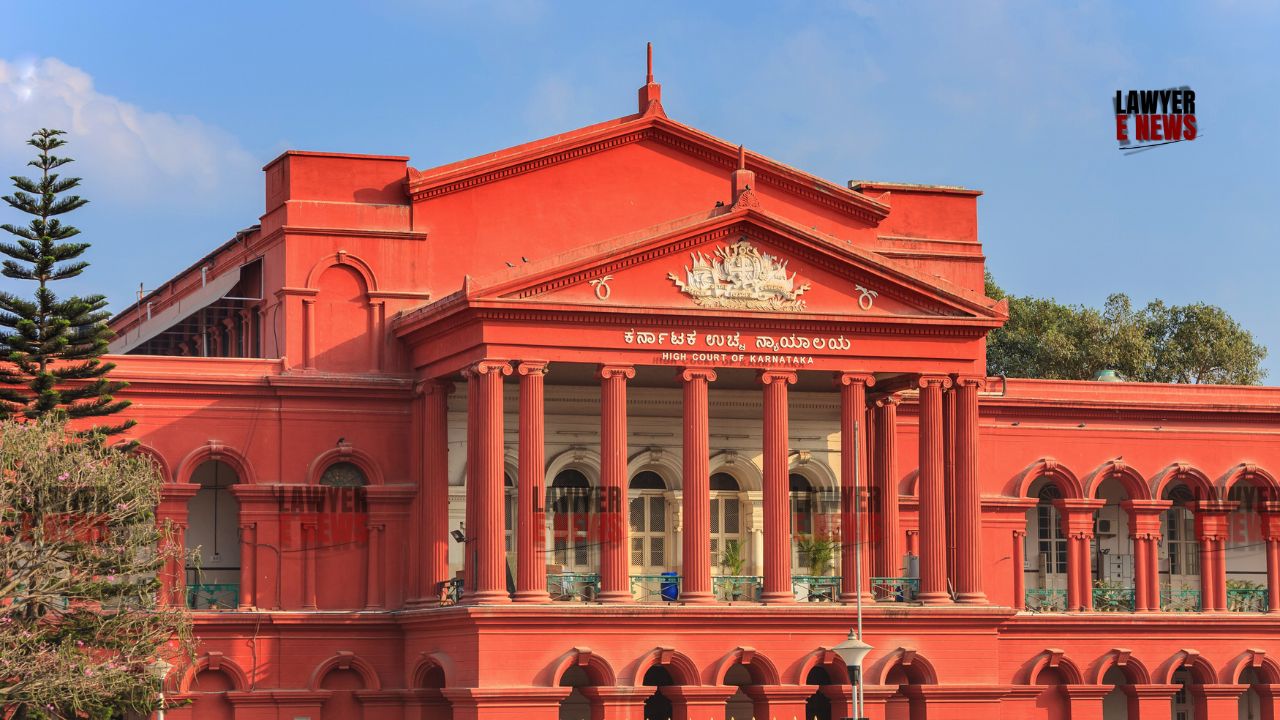-
by Admin
15 February 2026 2:36 AM



High Court of Karnataka addressed the issue of whether chanting religious slogans in a mosque amounted to criminal offenses under Indian Penal Code (IPC) sections related to religious feelings and public mischief. The court ruled that the chanting of "Jai Sriram" inside the mosque did not constitute an offense under Section 295A of the IPC, as it lacked the element of "deliberate and malicious intention" to outrage religious sentiments.
The incident involved two petitioners, Keerthan Kumar and Sachin Kumar, who were accused of entering a mosque on the night of September 24, 2023, and chanting “Jai Sriram.” A complaint was filed the next day, alleging that the petitioners had threatened the mosque authorities and created communal discord. Based on this complaint, a First Information Report (FIR) was lodged under Sections 447 (criminal trespass), 295A (insulting religious feelings), 505 (statements conducing public mischief), and 506 (criminal intimidation) of the IPC.
The petitioners challenged the FIR and the subsequent proceedings in the Karnataka High Court, arguing that none of the offenses mentioned were applicable to the incident.
The central question before the court was whether the acts of the petitioners, particularly the chanting of "Jai Sriram" within a mosque, fulfilled the requirements of the offenses under the IPC.
Section 295A – Deliberate and Malicious Acts to Outrage Religious Feelings: The court observed that Section 295A penalizes only deliberate and malicious acts aimed at outraging religious feelings. The bench, led by Justice M. Nagaprasanna, emphasized that the complainant's statement itself mentioned that Hindus and Muslims in the area coexisted peacefully, thus casting doubt on the allegation of intent to incite religious discord. The court cited the Supreme Court ruling in Mahendra Singh Dhoni v. Yerraguntla Shyamsundar, which clarified that not every act offensive to religious beliefs is punishable under Section 295A.
Section 505 – Public Mischief: There was no evidence to suggest that the chanting had caused public mischief or disturbed public order. The court found no direct link between the act and any disruption of communal harmonySection 506 – Criminal Intimidation: The court pointed out that the complaint did not provide any specific threats made by the petitioners that could invoke Section 506. The elements of criminal intimidation, as defined in Section 503, were absent from the case.
Section 447 – Criminal Trespass: The court rejected the argument that the petitioners had committed criminal trespass. Since a mosque is considered a public place of worship, merely entering it did not constitute trespass unless the intent was to commit a crime, which was not established in this case.
“No Malicious Intent, No Crime”
The High Court concluded that the petitioners' actions did not meet the criteria for the offenses they were charged with. It stressed that mere chanting of religious slogans, in this case, "Jai Sriram," without evidence of malicious intent or public disorder, did not amount to a criminal act. The court quashed the FIR and the entire proceedings pending before the II Additional Civil Judge and JMFC, Puttur, Dakshina Kannada.
In this significant ruling, the Karnataka High Court underscored the importance of intent in criminal cases involving religious sentiments. The court's decision to quash the proceedings against the petitioners highlights that chanting slogans, even in religious spaces, does not automatically lead to criminal liability under Section 295A unless there is clear evidence of malice or public mischief.
Date of Decision: September 13, 2024
Keerthan Kumar v. State of Karnataka
